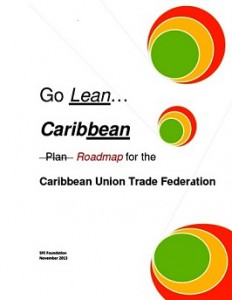Go Lean Commentary
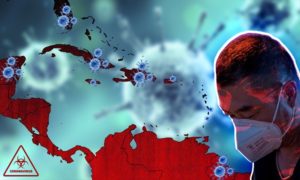 Here’s an urgent inquiry to the 30 member-states that comprise the political Caribbean:
Here’s an urgent inquiry to the 30 member-states that comprise the political Caribbean:
What do you need right now?
With the “pangs of distress” of the Coronavirus (COVID-19) pandemic devastating the world today, it may be obvious what the communities’ needs are:
- Universal Testing
- Treatment Protocols for anyone affected
- A Flu-Shot / Vaccine
- Rebooting of the Economy
This is right for the Caribbean member-states … and the whole world actually. This last item – Rebooting of the Economy – was an acute need even before this pandemic. This was truly what was needed; and what is needed now even more urgently.
The publishers behind the 2013 book Go Lean…Caribbean – with no foresight of 2020’s Coronavirus threat – detailed the sad state of affairs for the Caribbean economy and societal life in general. The book stated in its opening words (Page 3):
There is something wrong in the Caribbean. It is the greatest address in the world for its 4 language groups, but instead of the world “beating a path” to these doors, the people of the Caribbean have “beat down their doors” to get out. …
Many people love their homelands and yet still begrudgingly leave; this is due mainly to the lack of economic opportunities. The Caribbean has tried, strenuously, over the decades, to diversify their economy …
So how now …? How do we reboot the Caribbean economy now, even though we needed to do it all the while in the past? The answer is found in a previous blog-commentary that was published early in the history of this movement (April 21, 2014), at the start of the practice of publishing these commentaries:
‘Only at the precipice, do they change’
We’re on the brink of destruction and you’re right. But it’s only on the brink that people find the will to change. Only at the precipice do we evolve. This is our moment. Don’t take it from us. We are close to an answer.
April 21, 2014 – exactly 6 years to the day – was only the 2nd month of this publishing practice; that was the 51st blog in our history. Today, we are publishing this one, the 1000th. This 1000th submission is truly a monumental milestone; and ideal for these monumental times.
The reality of the Coronavirus-COVID-19 here in April 2020 means that we are truly “at the brink of destruction”; this is the State of our Caribbean Union; we must now “find the will to change”, to reform and transform our society.
 How do we go about this change? What is the answer?
How do we go about this change? What is the answer?
Now, is the time for a class, a MasterClass … a MasterClass on Economics in Society.
Huh?! What?! Why?!
This MasterClass was taught by this Nobel Laureate Economist Paul Krugman – see his profile in Appendix A below – and see the Topic Highlights of the MasterClass here:
See this introduction to this MasterClass in this VIDEO here:
VIDEO – Paul Krugman Teaches Economics and Society | Official Trailer | MasterClass – https://youtu.be/JRhvnlQHKc0
MasterClass
Paul Krugman’s work is defined by his belief in the power of economic thought to open minds and change history.Learn more about Paul Krugman Teaches Economics and Society: https://www.masterclass.com/pk
In his economics class, Paul says that “economics covers 70% of life.” Not the passions and deep meanings, but everything that keeps clothes on our backs, food on our plates, and the trains running on time. The economic lens can help tell us how income inequality happens, it can predict how tariffs on Chinese steel will play out, and it can steer us toward more effective policies to get us out of a recession.
Over the course of his 40+ year career, Paul Krugman has become one of the most influential economists of our time. He is a New York Times columnist, lecturer, best-selling author, and won a Nobel for his theories on international trade and economies of scale. Through it all, he’s made it his mission to translate complex and abstract economic concepts into plain English.
Paul Krugman’s MasterClass on economics and society will teach you the core economic concepts that drive our world, how those concepts impact current issues, and how to develop strategies to become a better informed and empowered citizen. His online economics course includes case studies of his works, his process for writing a column, his resources for reliable news and data, and more. Through 22 video lessons and a customized workbook tailored to each chapter Paul teaches you:
- The principles of economic thought
- How to think beyond bias, slogans, and partisanship
- The basics of international trade • Debunking myths about taxes
- What’s wrong with the health care market and how to fix it
- How the Fed works and its role in recessions and crises
- What happened in the ‘08 crash
- The impact of China’s rise on the US job market
- How to be an informed and skeptical reader of economics
- His process for writing a column
More from MasterClass:
- David Axelrod and Karl Rove Teach Campaign Strategy and Messaging: https://www.masterclass.com/dakr
- Bob Woodward Teaches Investigative Journalism: https://www.masterclass.com/bw
- Dr. Jane Goodall Teaches Conservation https://www.masterclass.com/jg
About MasterClass:
MasterClass makes it possible for anyone to learn from the best. Get inspired with classes from 75+ world-renowned instructors on cooking, photography, writing, performance, and much more. Watch video lessons anytime, anywhere on mobile, desktop, Apple TV, and Amazon Fire TV.
- Subscribe: https://mstr.cl/30SH1wj
- Facebook: https://www.facebook.com/masterclasso…
- Instagram: https://www.instagram.com/masterclass
- Twitter: https://www.twitter.com/masterclass #MasterClass #PaulKrugman #economics
Category: Education
Seriously, we urge all Caribbean stakeholders to consume this MasterClass. See the thorough review of the MasterClass in Appendix B below. (Connect to the actual link for the paid class here: https://www.masterclass.com/pk)
One definition of insanity is to do the same things again and again expecting a different result.
The movement behind the Go Lean book has consistently messaged against the Zombie Economic Ideas operating in the Caribbean region. It is inconceivable how one Caribbean member-state after another repeat the same economic mistakes – suicide actually. Let’s revisit some examples here-now, and see how this theme had been highlighted in these previous Go Lean blog-commentaries; see this sample list here:
- Prevalence of fossil fuels despite abundance of alternative energy sources
- Former slaves doubling-down on the same failed governing structures that their former slave masters championed.
- Giving incentives to cruise line operators to undermine stay-over tourism.
- Charging excessive aviation taxes to deter airline traffic into the region – making cruises more feasible.
- Getting in debt in a foreign currency. Getting new debt to pay-off old date? Why repeat?
- Charging fees – rent – for doing nothing which curtails entrepreneurship and direct foreign investments.
- Monopolizing domestic banking business with foreign banks.
- Repeating the same Economic Policy Disasters in History – Learning nothing.
A MasterClass on Zombie Economic Ideas …
Yeah! Bring it on.
This is the latest milestone, a nice round figure of 1000. But this is also a nice juncture to look back at the previous milestones. See these previous Go Lean blog-commentary milestones here (in reverse chronological order):
| Date | Description |
| June 7, 2019 | Blog # 900 – 2020: Where Vision is Perfected |
| September 14, 2018 | Blog # 800 – An Inconvenient Truth – Caribbean Version |
| May 17, 2017 | Blog # 700 – We Need to Talk! |
| March 4, 2017 | Blog # 600 – State of Caribbean Union: Hope and Change |
| November 2, 2016 | Blog # 500 – Vision and Values for a ‘New’ Caribbean |
| February 20, 2016 | Blog # 400 – A Vision of Freeport (Bahamas 2nd City) as a Self-Governing Entity |
| May 18, 2015 | Blog # 300 – Legacies: Cause and Effect |
| November 28, 2014 | Blog # 200 – Ignorance is no excuse – Milestone in Enlightenment |
| August 26, 2014 | Blog # 150 – Why So Long? Can’t We Just… |
| June 15, 2014 | Blog # 100 – College World Series Time |
The movement behind the Go Lean book has consistently monitored and messaged about the need to reform and transform the Caribbean societal engines. This need is heightened all the more so during this current fight against the Coronavirus threat.
The ordinary times are no more; these are extraordinary times.
We have no excuse now not to change, adapt, transform, improve, optimize, thrive … finally. Let’s get started. Let’s lean-in to this Go Lean roadmap to make our regional homeland a better place to live, work and play. 🙂
About the Book
The book Go Lean…Caribbean serves as a roadmap for the introduction and implementation of the technocratic Caribbean Union Trade Federation (CU), for the elevation of Caribbean society – for all member-states. This CU/Go Lean roadmap has these 3 prime directives:
- Optimization of the economic engines in order to grow the regional economy to $800 Billion & create 2.2 million new jobs.
- Establishment of a security apparatus to ensure public safety and protect the resultant economic engines.
- Improve Caribbean governance to support these engines, including a separation-of-powers between the member-states and CU federal agencies.
The Go Lean book provides 370-pages of turn-by-turn instructions on “how” to adopt new community ethos, plus the strategies, tactics, implementations and advocacies to execute so as to reboot, reform and transform the societal engines of Caribbean society.
Download the free e-Book of Go Lean … Caribbean – now!
Who We Are
The movement behind the Go Lean book – a non-partisan, apolitical, religiously-neutral Community Development Foundation chartered for the purpose of empowering and re-booting economic engines – stresses that reforming and transforming the Caribbean societal engines must be a regional pursuit. This was an early motivation for the roadmap, as pronounced in the opening Declaration of Interdependence (Pages 12 – 13):
xi. Whereas all men are entitled to the benefits of good governance in a free society, “new guards” must be enacted to dissuade the emergence of incompetence, corruption, nepotism and cronyism at the peril of the people’s best interest. The Federation must guarantee the executions of a social contract between government and the governed.
xvi. Whereas security of our homeland is inextricably linked to prosperity of the homeland, the economic and security interest of the region needs to be aligned under the same governance. Since economic crimes … can imperil the functioning of the wheels of commerce for all the citizenry, the accedence of this Federation must equip the security apparatus with the tools and techniques for predictive and proactive interdictions.
xxiv. Whereas a free market economy can be induced and spurred for continuous progress, the Federation must install the controls to better manage aspects of the economy: jobs, inflation, savings rate, investments and other economic principles. Thereby attracting direct foreign investment because of the stability and vibrancy of our economy.
Sign the petition to lean-in for this roadmap for the Caribbean Union Trade Federation.
———————
Appendix A – Nobel Laureate Economist Paul Krugman
Paul Robin Krugman (born February 28, 1953)[3] is an American economist who is the Distinguished Professor of Economics at the Graduate Center of the City University of New York, and a columnist for The New York Times.[4] In 2008, Krugman was awarded the Nobel Memorial Prize in Economic Sciences for his contributions to New Trade Theory and New Economic Geography.[5] The Prize Committee cited Krugman’s work explaining the patterns of international trade and the geographic distribution of economic activity, by examining the effects of economies of scale and of consumer preferences for diverse goods and services.[6]
Krugman was previously a professor of economics at MIT, and later at Princeton University. He retired from Princeton in June 2015, and holds the title of professor emeritus there. He also holds the title of Centenary Professor at the London School of Economics.[7] Krugman was President of the Eastern Economic Association in 2010,[8] and is among the most influential economists in the world.[9] He is known in academia for his work on international economics (including trade theory and international finance),[10][11] economic geography, liquidity traps, and currency crises.
Krugman is the author or editor of 27 books, including scholarly works, textbooks, and books for a more general audience, and has published over 200 scholarly articles in professional journals and edited volumes.[12] He has also written several hundred columns on economic and political issues for The New York Times, Fortune and Slate. A 2011 survey of economics professors named him their favorite living economist under the age of 60.[13] As a commentator, Krugman has written on a wide range of economic issues including income distribution, taxation, macroeconomics, and international economics. Krugman considers himself a modern liberal, referring to his books, his blog on The New York Times, and his 2007 book The Conscience of a Liberal.[14] His popular commentary has attracted widespread attention and comments, both positive and negative.[15] According to the Open Syllabus Project, Krugman is the second most frequently cited author on college syllabi for economics courses.[16]
…
Source: Retrieved April 19, 2020 from: https://en.wikipedia.org/wiki/Paul_Krugman
———————
Appendix B VIDEO – Paul Krugman Masterclass Review – Is It Worth the money? – https://youtu.be/efel_G9C_XI
LouisPee
Posted Dec 19, 2018 – Grab Paul Krugman’s economics Masterclass here: http://bit.ly/2Qt4tyf
Today we complete a review of Paul Krugman’s Masterclass course on economics and society. We discuss each component of the Masterclass from the workbook to the lesson plan and go into the curriculum as though you purchased it. We then consider if it’s worth it for you based on your interest and existing knowledge in economics and society.
If you’re a fan of Paul Krugman’s writings from the New York Times, or blog. You may want to support him by getting his [official] Masterclass here: http://bit.ly/2Qt4tyf
I personally purchased the all-access Masterclass which gives me access to all the present and future classes. http://bit.ly/MasterclassAll
#PaulKrugman #Masterclass #Review #Economics #Society #NYTimes #Krugman #Economy #Crash #PropertyMarket
- Category: Education
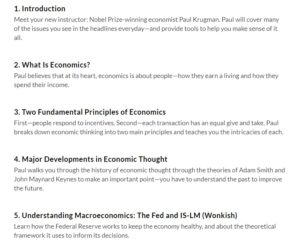
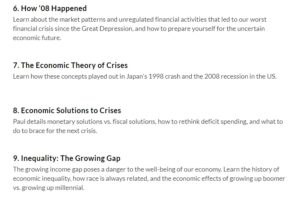
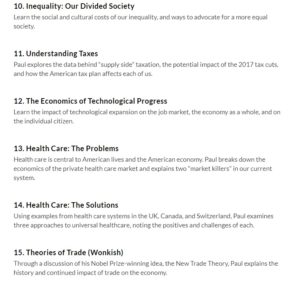
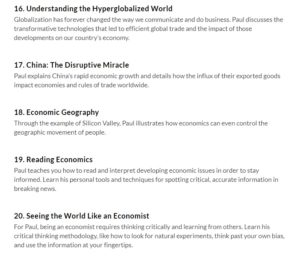
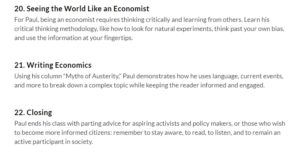
 Do “you” have 20/20 vision?
Do “you” have 20/20 vision? We are already pursuing these activities! While we are planning for the new year – 2020 – we have already published this Go Lean book and distributed it widely in the Caribbean region for the quest of forging change-correction in the Caribbean vision. We have also promoted the book aggressively by publishing related blog-commentaries. While the book was published in November 2013, the commentaries started in February 2014. Now we are up to a new milestone:
We are already pursuing these activities! While we are planning for the new year – 2020 – we have already published this Go Lean book and distributed it widely in the Caribbean region for the quest of forging change-correction in the Caribbean vision. We have also promoted the book aggressively by publishing related blog-commentaries. While the book was published in November 2013, the commentaries started in February 2014. Now we are up to a new milestone:
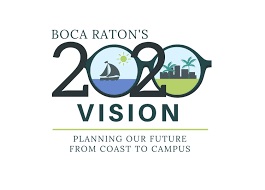
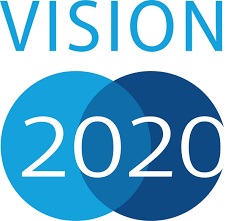

 There was a film released in 2006 entitled
There was a film released in 2006 entitled 

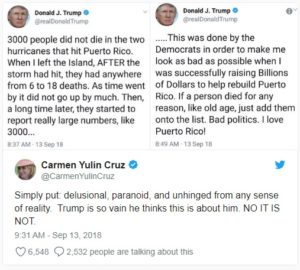
 This is a familiar advocacy from the movement behind the book Go Lean…Caribbean – available to
This is a familiar advocacy from the movement behind the book Go Lean…Caribbean – available to 

 In this urgent and insightful book, public radio journalist Celeste Headlee shows us how to bridge what divides us–by having real conversations. (BASED ON THE TED TALK WITH OVER 10 MILLION VIEWS)
In this urgent and insightful book, public radio journalist Celeste Headlee shows us how to bridge what divides us–by having real conversations. (BASED ON THE TED TALK WITH OVER 10 MILLION VIEWS) Biography
Biography







